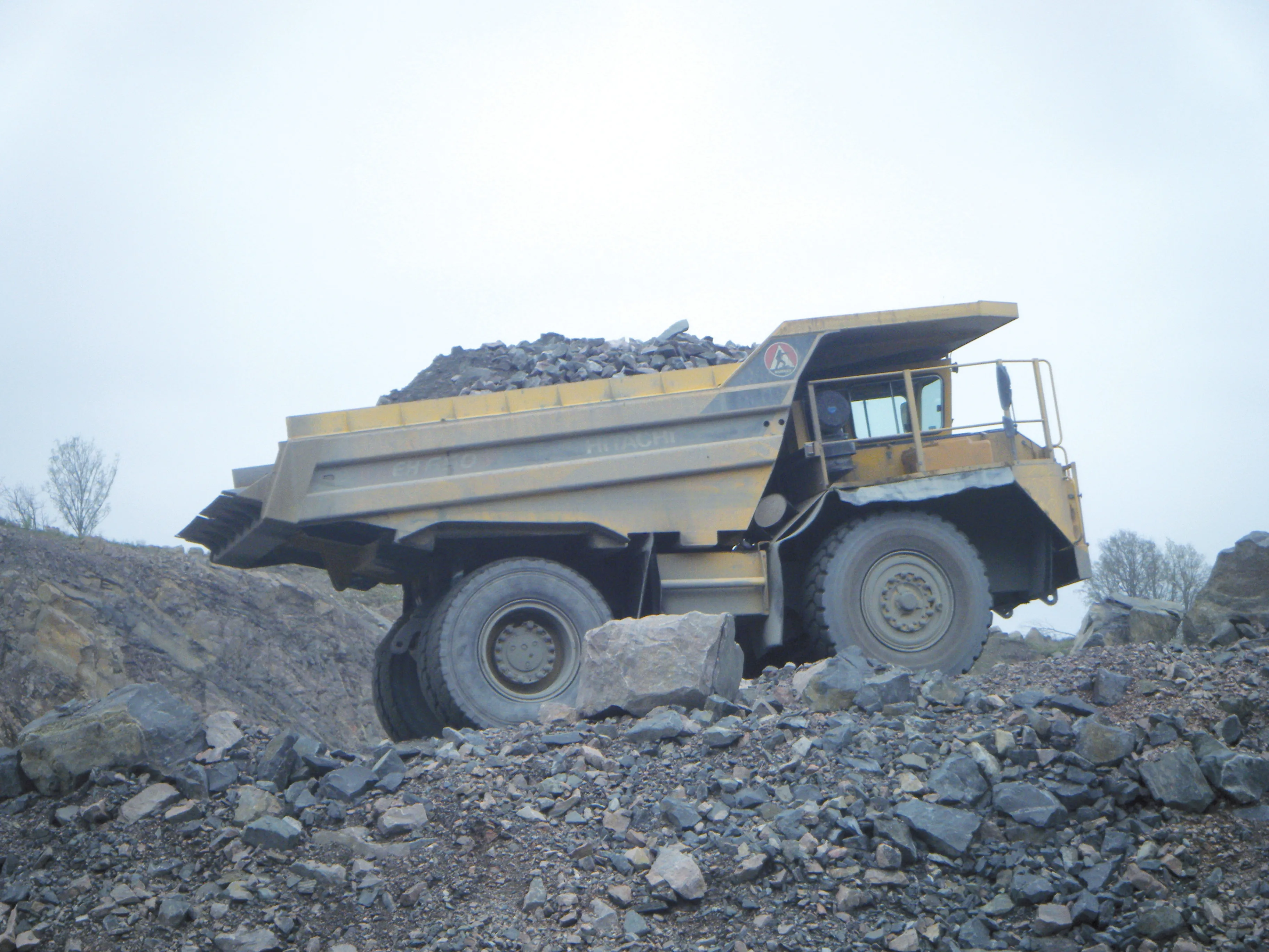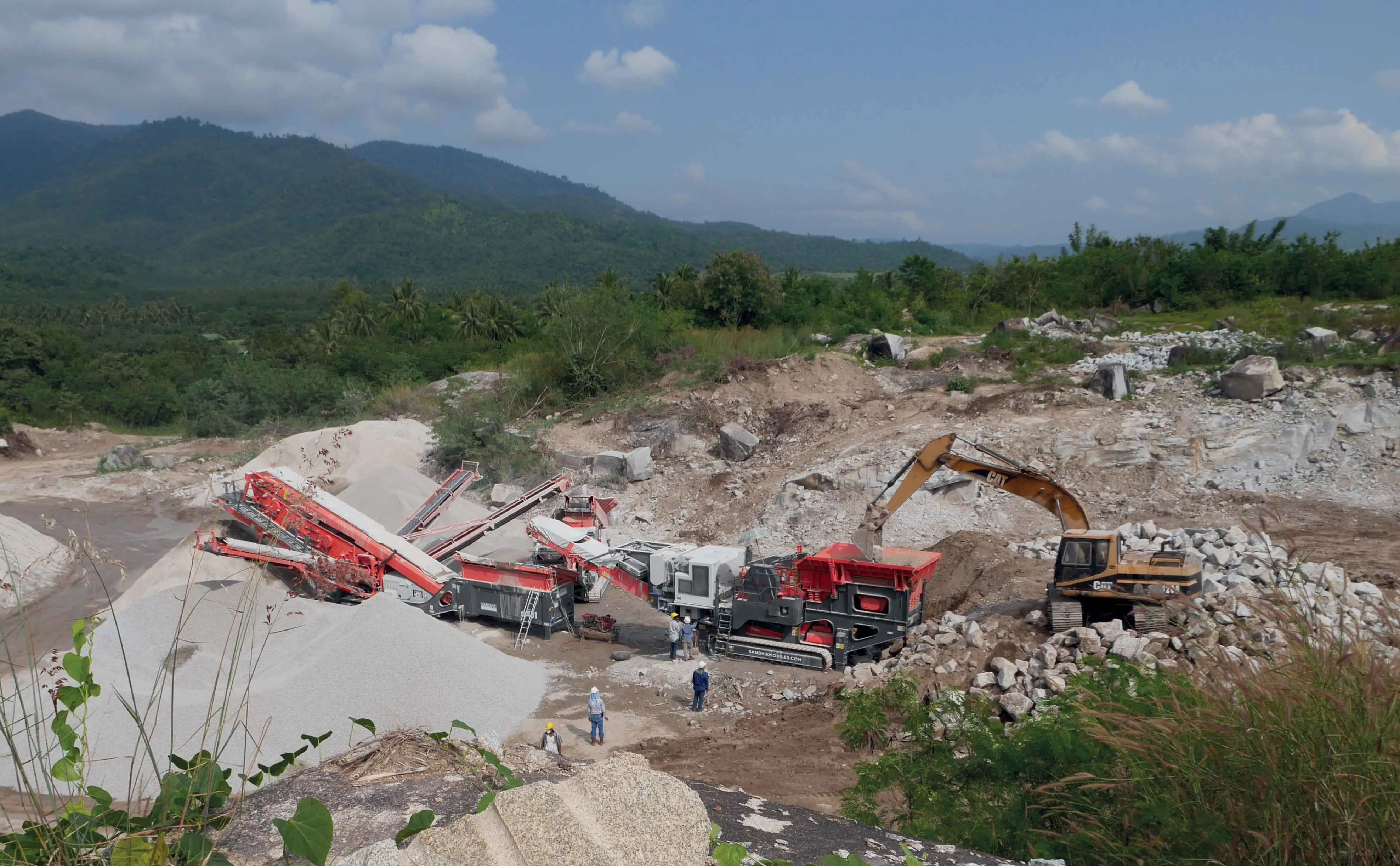Close to Sweden's second largest city Göthenburg lies the efficient Jehander quarrying operation run by Heidelberg Cement. The site produces around 9,000tonnes/day at peak seasonal demand and has an output of some 1,000,000tonnes/year. The site has recently renewed its operating permission and now has the necessary approval to work until 2021.
February 10, 2012
Read time: 3 mins

Close to Sweden's second largest city Göthenburg lies the efficient Jehander quarrying operation run by 2551 Heidelberg Cement. The site produces around 9,000tonnes/day at peak seasonal demand and has an output of some 1,000,000tonnes/year. The site has recently renewed its operating permission and now has the necessary approval to work until 2021.
Niklas Osvaldsson is regional manager for Heidelberg Cement and said, "Since early 2000 this has been part of the Heidelberg Group." Stone production originally started at the site in 1939 and the highest point of the quarry is 130m above sea level and Osvaldsson said, "We've cut around 60 million tonnes from the site since production began. Jehander is the number one supplier of rock and gravel in Sweden." The benches are 15m high and the quarry has five different faces, although these are not all operating at the same time and production is moved around to ensure a consistent material grade into the crushing plant. Osvaldsson said, "The average blast provides 30-40,000tonnes and we blast every week." This rock is put through the primary crusher and he said, "We take this material down to around 150mm." Wheeled loaders are used for truck loading while the blasted stone is carried to the plant by ADTs and on/off highway trucks. The primary crusher is a325 Sandvik mobile unit, while the secondary and tertiary crushers are fixed. Crushed stone is transported from the quarry by road and rail. Osvaldsson said, "In high season a truck leaves here every two minutes. We deliver 100,000tonnes/year by train and it's an opportunity to reach a wider market.
The high quality stone finds a ready market in Sweden and Osvaldsson said, "It produces granite and Swedish diorite, which is very hard and good for road construction. Our main customers are the construction and building industries and we don't export stone." The quarry also receives asphalt and concrete for recycling, reprocessing some 25,000tonnes/year of each material.
With the site located in Sweden, it is perhaps no surprise that machines from Volvo Construction Equipment make up the bulk of the fleet. A359 Volvo CE EC700 feeds the primary crusher, while Volvo CE L180 and L220 wheeled loaders are used for loading at the face into the Volvo CE A25 ADTs, as well as for stocking duties. The site operates four L180s, two L220s, three A25s and an EH650 rigid hauler from 233 Hitachi.
Osvaldsson said that the Volvo CE machines offer a combination of good output, durability, reliability and low downtime as well as good resale value. In addition Volvo CE units tend to have amongst the lowest fuel consumption in their respective classes and given the high fuel costs in Sweden, this is an important factor in the site's choice of Volvo CE machines.
Niklas Osvaldsson is regional manager for Heidelberg Cement and said, "Since early 2000 this has been part of the Heidelberg Group." Stone production originally started at the site in 1939 and the highest point of the quarry is 130m above sea level and Osvaldsson said, "We've cut around 60 million tonnes from the site since production began. Jehander is the number one supplier of rock and gravel in Sweden." The benches are 15m high and the quarry has five different faces, although these are not all operating at the same time and production is moved around to ensure a consistent material grade into the crushing plant. Osvaldsson said, "The average blast provides 30-40,000tonnes and we blast every week." This rock is put through the primary crusher and he said, "We take this material down to around 150mm." Wheeled loaders are used for truck loading while the blasted stone is carried to the plant by ADTs and on/off highway trucks. The primary crusher is a
The high quality stone finds a ready market in Sweden and Osvaldsson said, "It produces granite and Swedish diorite, which is very hard and good for road construction. Our main customers are the construction and building industries and we don't export stone." The quarry also receives asphalt and concrete for recycling, reprocessing some 25,000tonnes/year of each material.
With the site located in Sweden, it is perhaps no surprise that machines from Volvo Construction Equipment make up the bulk of the fleet. A
Osvaldsson said that the Volvo CE machines offer a combination of good output, durability, reliability and low downtime as well as good resale value. In addition Volvo CE units tend to have amongst the lowest fuel consumption in their respective classes and given the high fuel costs in Sweden, this is an important factor in the site's choice of Volvo CE machines.






